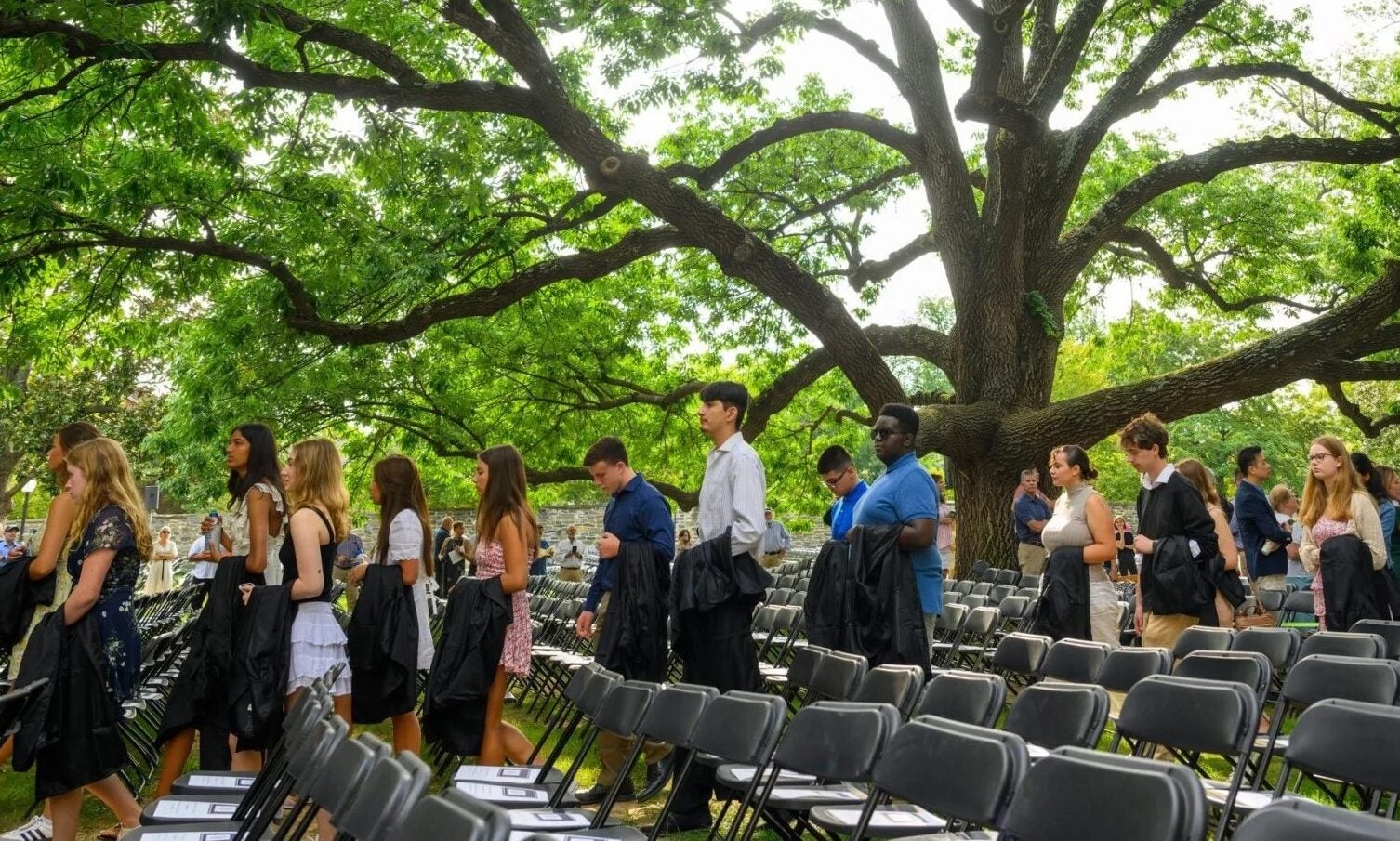
‘Welcome To Your New Home’: New Students Become Hoyas for the First Time
On a sunny morning in August, 1,600 new students processed onto Copley Lawn, just as generations of Hoyas had before them.
It was the first time the classmates gathered together as the Class of 2028. And it was the first official start of their academic journeys at Georgetown. As students slipped on black gowns, signifying this start, families, friends, alumni, faculty and staff cheered and clapped, phones bobbing above the crowds to capture their new beginning.
“It is an honor to share this moment with you. Welcome to Georgetown!” said Provost Robert M. Groves.
The Class of 2028 gathered for New Student Convocation, an annual rite of passage that welcomes first-year and transfer students to the Hilltop.
This year’s class includes 50 students from Georgetown in Qatar (GU-Q) and 88 transfer students. They represent 50 states, 50 countries and 22 different religions.
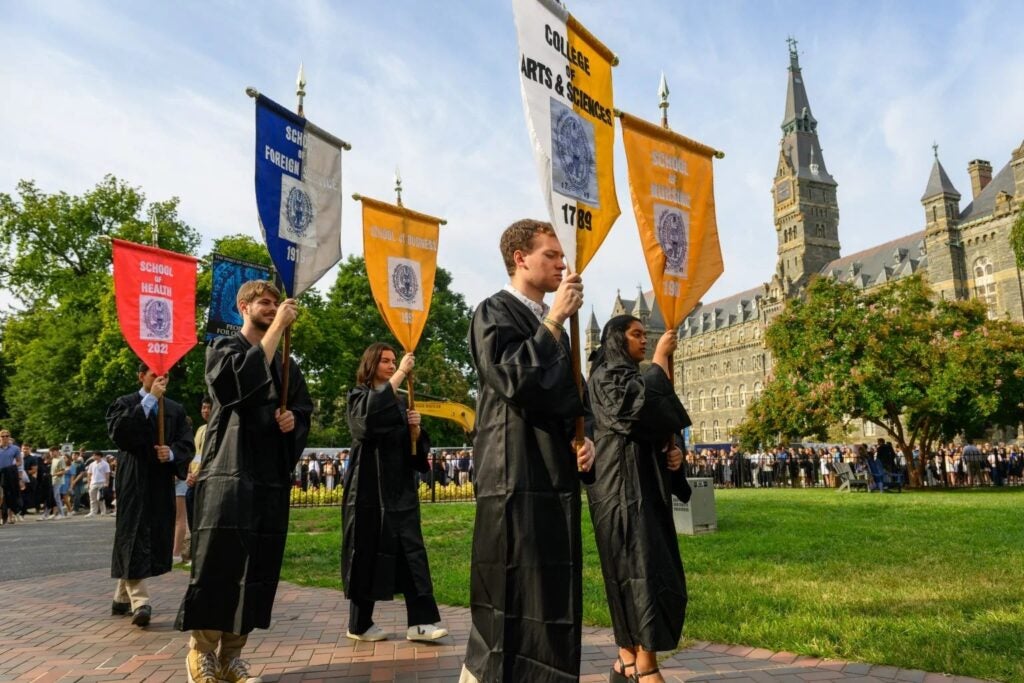
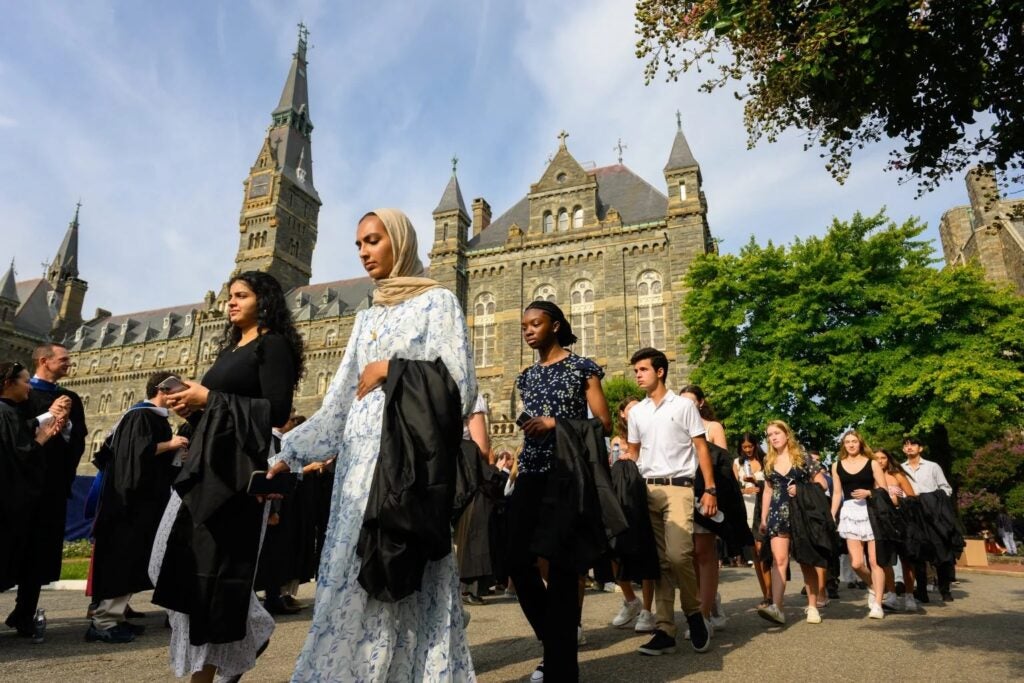
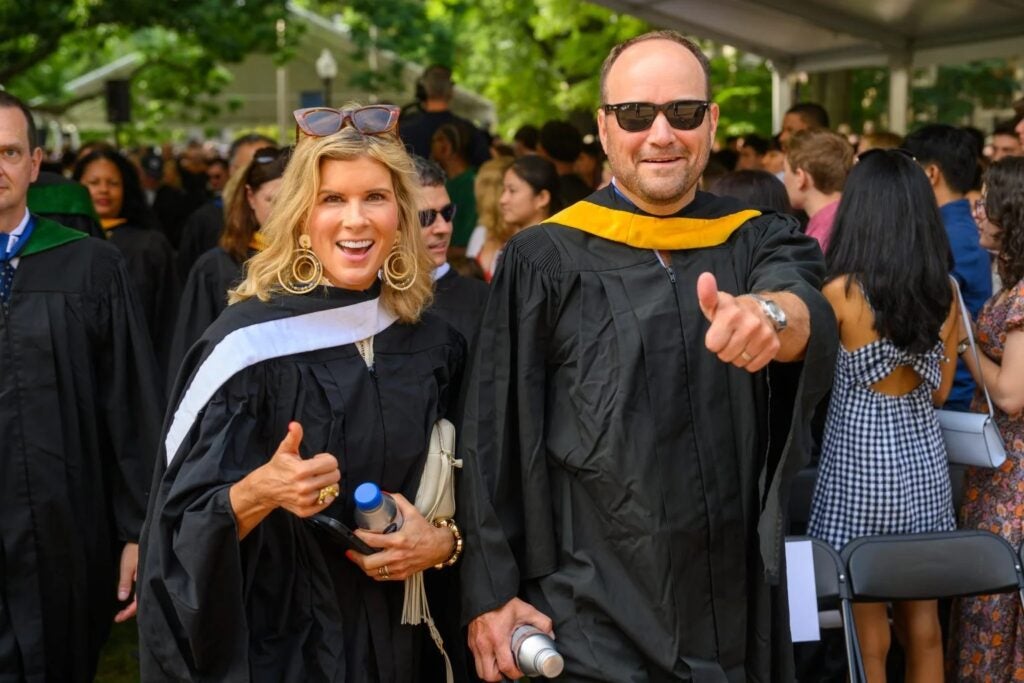
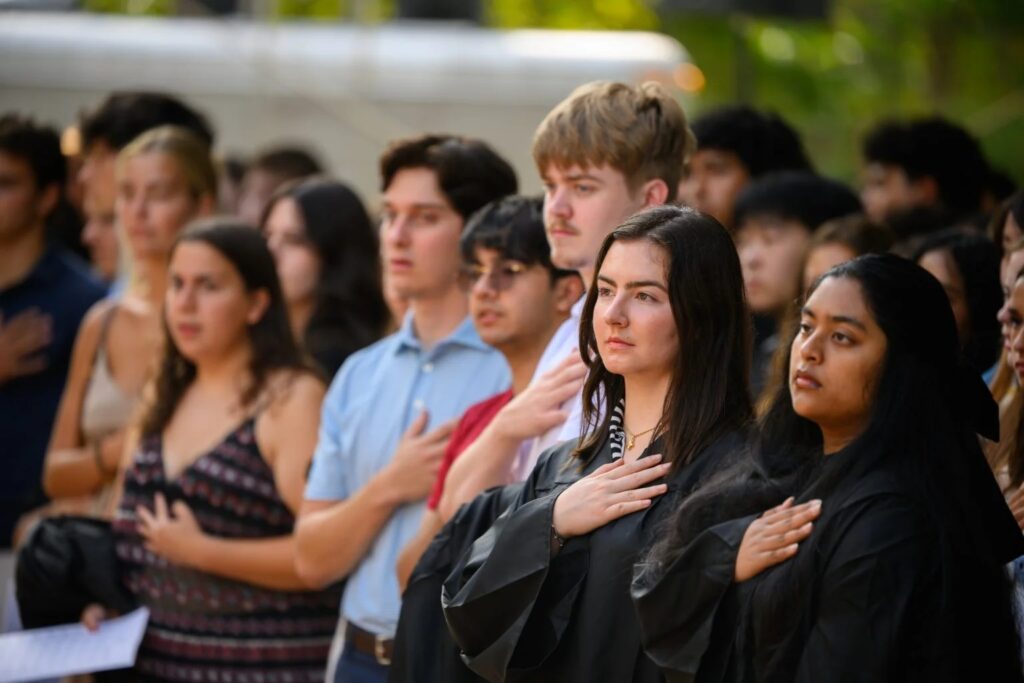
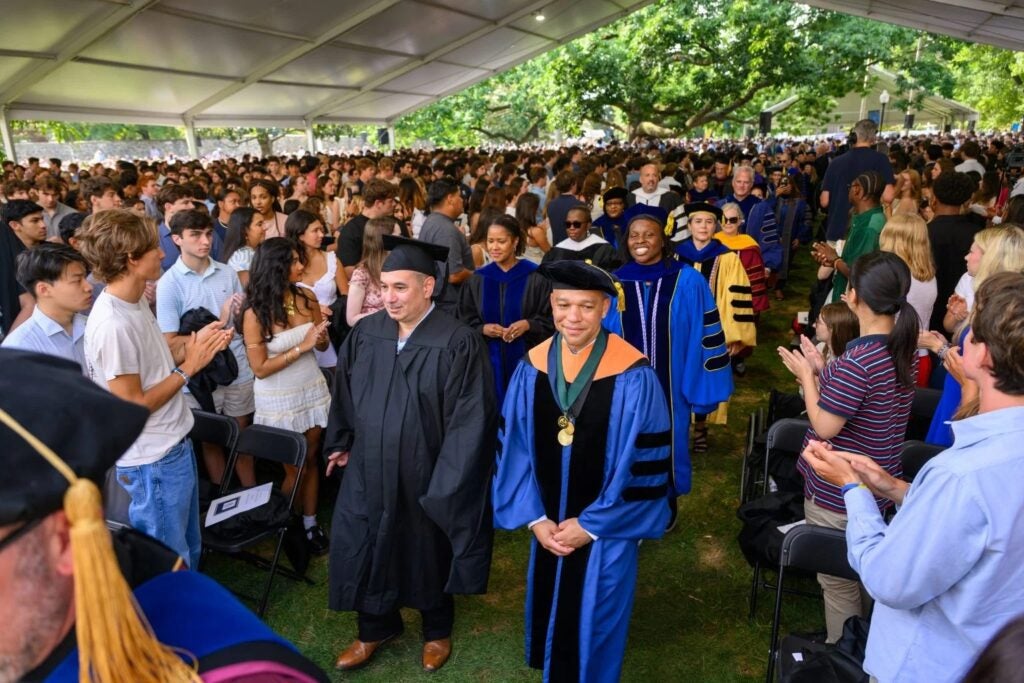
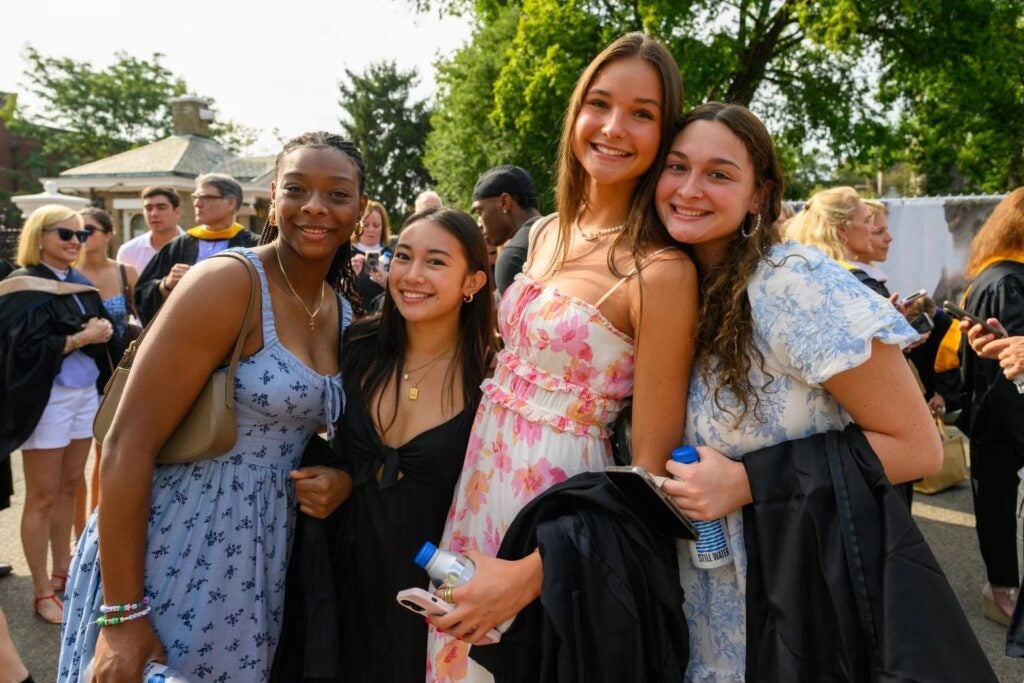
Embracing Discomfort
In his opening remarks, Vice Provost for Education David Edelstein encouraged new students to seek out different perspectives, particularly in a time of deep divide across the country and much of the world, he said.
“Universities like Georgetown are vital in moments just like this,” he said. “Vital as illustrations of how we as a society can learn and progress even as we disagree with one another.”
He urged students to engage perspectives and arguments that may challenge their preexisting beliefs. Doing so, he warned, will not feel “warm and fuzzy.”
“But generating that discomfort is in fact a sign of success for my faculty colleagues and me,” he said. “Being uncomfortable as you learn, as you interact is not a bug but a feature of Georgetown. What’s the payoff of this discomfort? Those who embrace this discomfort in order to learn from it will become leaders of your generation.”
Provost Groves reinforced the importance of engaging across differences throughout students’ journey of formation and self-discovery at Georgetown. This engagement, he said, is grounded in Georgetown’s founding mission of “serious and sustained dialogue with people of different faiths, cultures and beliefs” and its Spirit of Georgetown core value, Community in Diversity.
“You should learn that the ability to see the world the way others see it is a superpower,” he said. “We want you to acquire that capacity. You see, we see you as leaders of our collective future. And we need bridge builders across conflicting groups. … You’ll be assisted by the best people in the world who want that for you.”
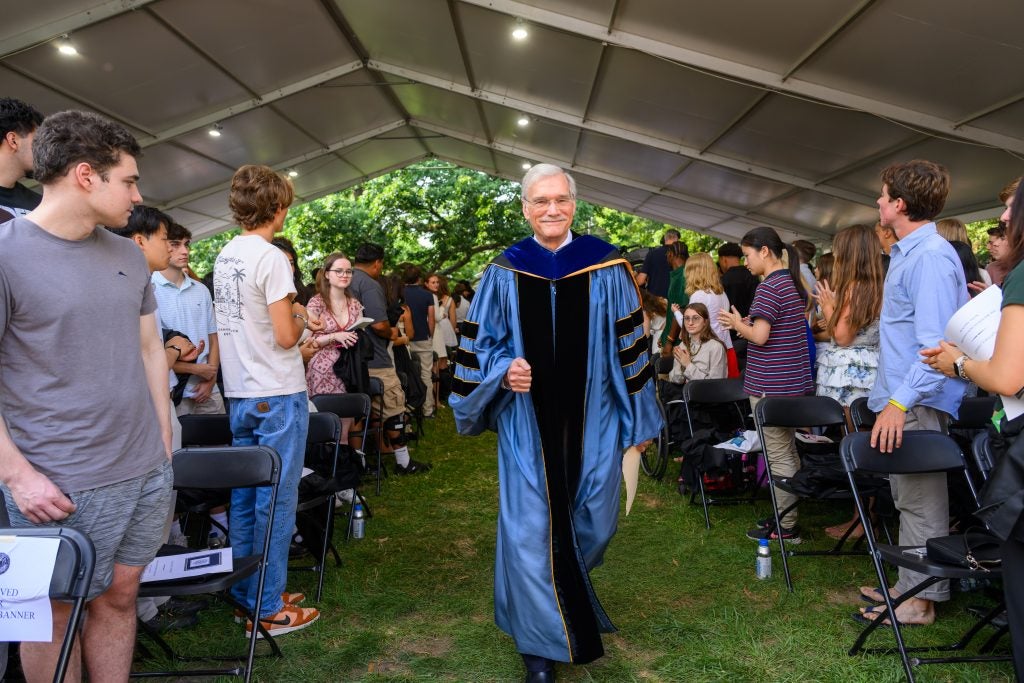
A Journey of Authenticity
During the ceremony, students also heard from a senior and faculty who offered words of wisdom.
Lisa Kennedy (C’25), co-president of the Georgetown Scholars Program’s student board, shared how Georgetown pushed and challenged her, particularly as she adjusted to college as a first-generation, low-income student. But over time, the university pushed her to meaningfully engage with faculty, with fellow students, with staff on campus, she said, creating a home away from home.
“I found my home here when I realized that this institution wasn’t just a place I was trying to fit into but rather a community that I could help shape,” she said.
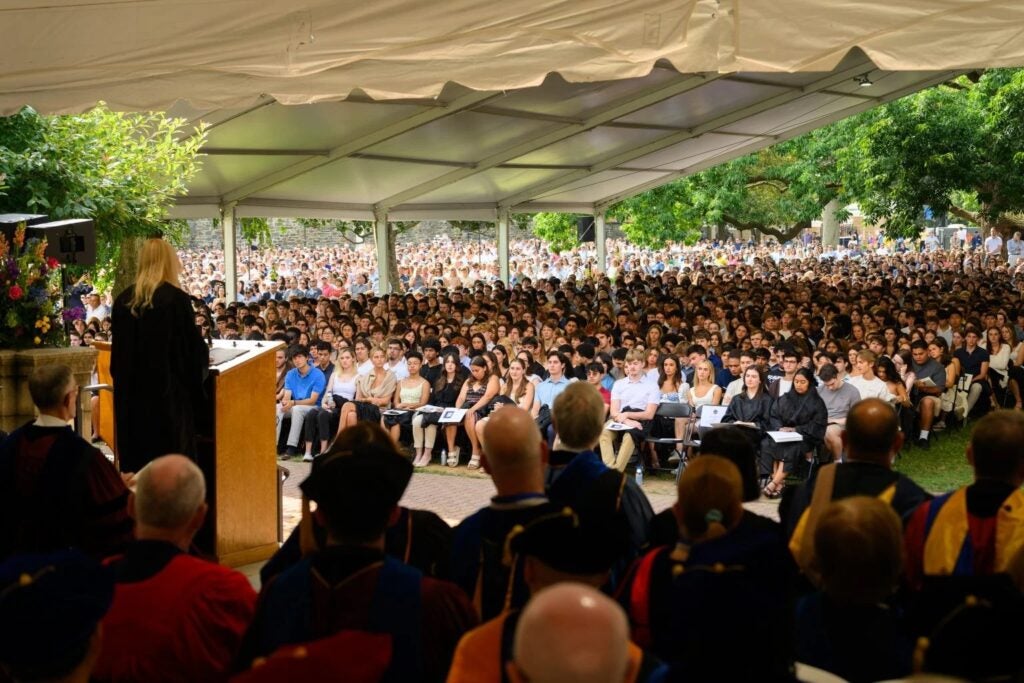
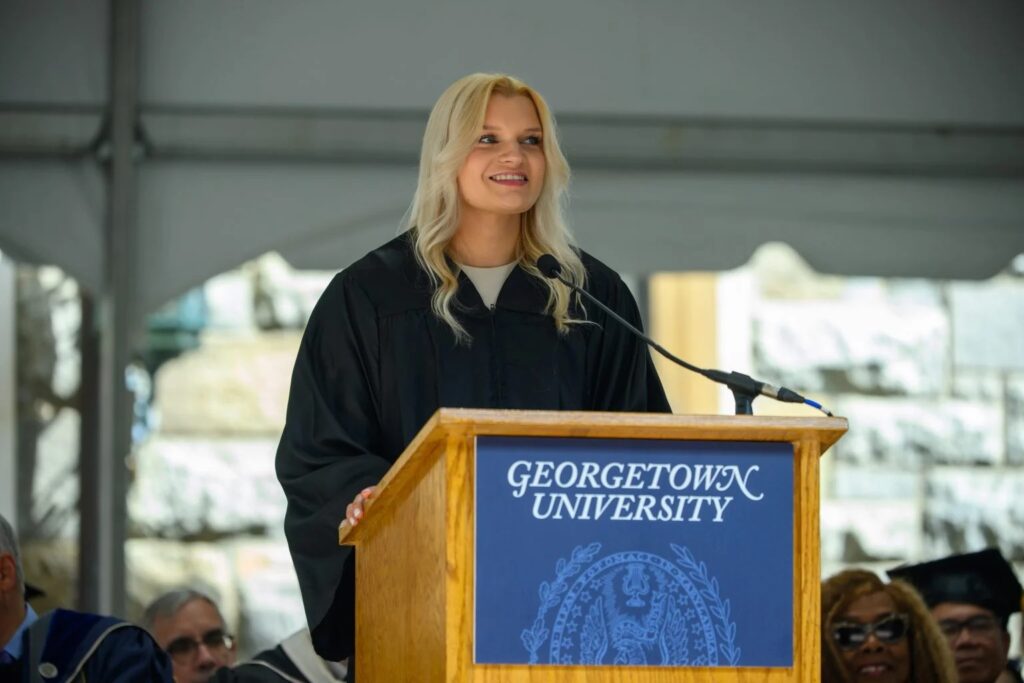
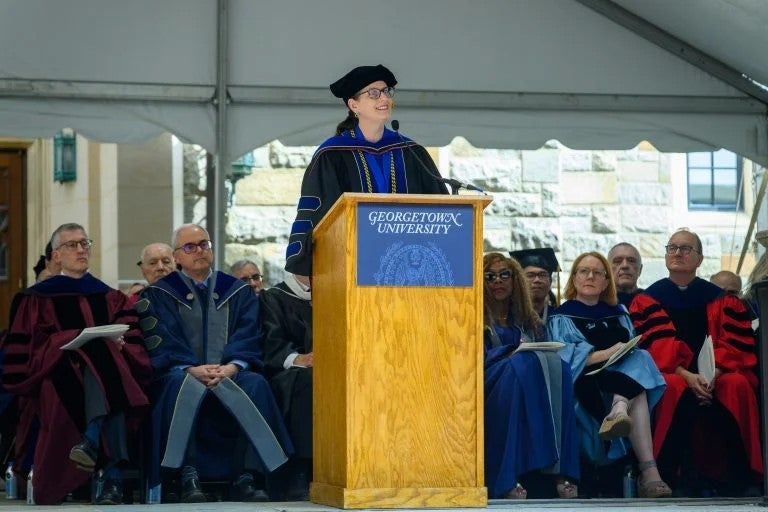
Laura DeNardis, director of the Center for Digital Ethics and the Inaugural Endowed Chair in Technology, Ethics and Society at Georgetown, discussed the value of authenticity during students’ Georgetown journey, particularly in an era of constant technological change.
“At Georgetown, you might hear a lot about discernment, personal discernment, which you might choose to explore in one of our many faith communities on campus. It can help each of us to authentically find what it means to be people for others,” she said.
“Welcome home to Georgetown.”
For Saima Jean-Lewis (B’28) the speeches made her feel at home. After attending the ceremony, the Miami Beach native said she felt like she belonged at Georgetown.
“They made us feel like we were chosen to be here for a reason,” she said. “It made me feel like I was part of the community, and I was one with the university. I’m really excited to make new friends and meet all the new people.”
Ben Winnemore (B’28), who hails from a small seaside town in northern England, said he was struck by the university’s Catholic values and sense of community.
“The values that come from being a Jesuit college definitely and the sense of community that comes hand in hand with that is something I definitely resonate with,” he said.
After a summer of long immigration logistics, he said it was surreal to finally be at his dream school. He was feeling, he said, on top of the world.
“I’m really looking forward to my time here.”
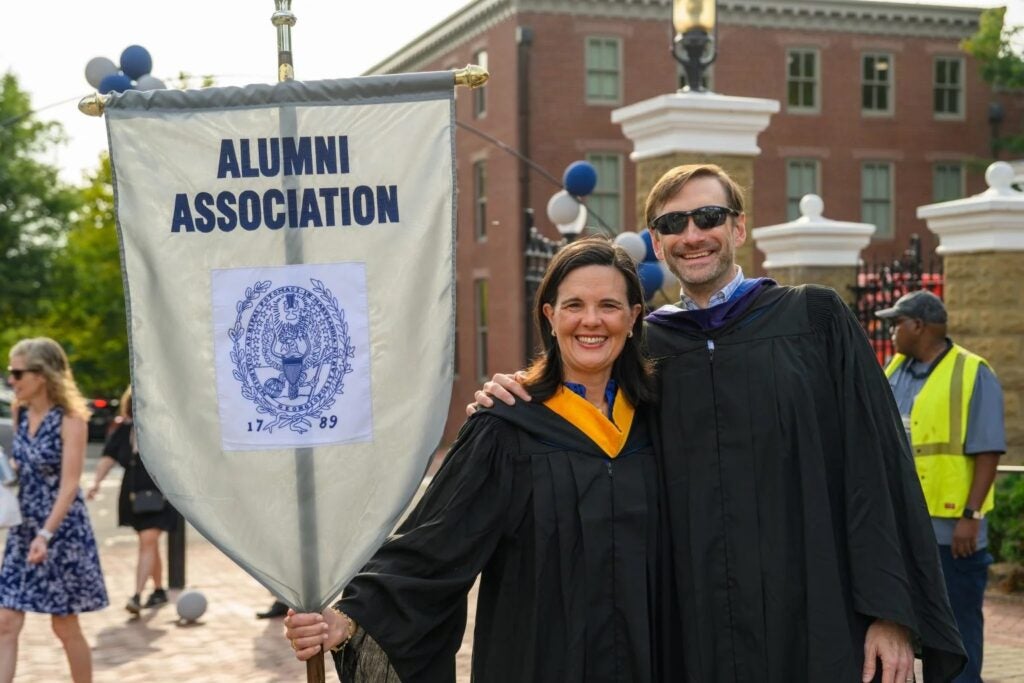
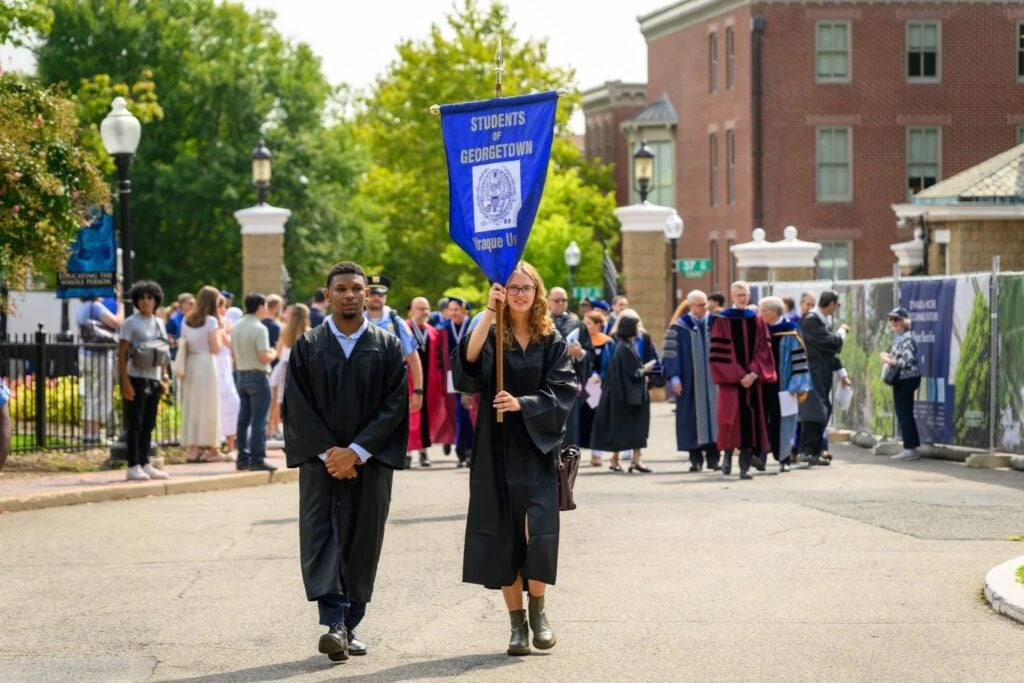
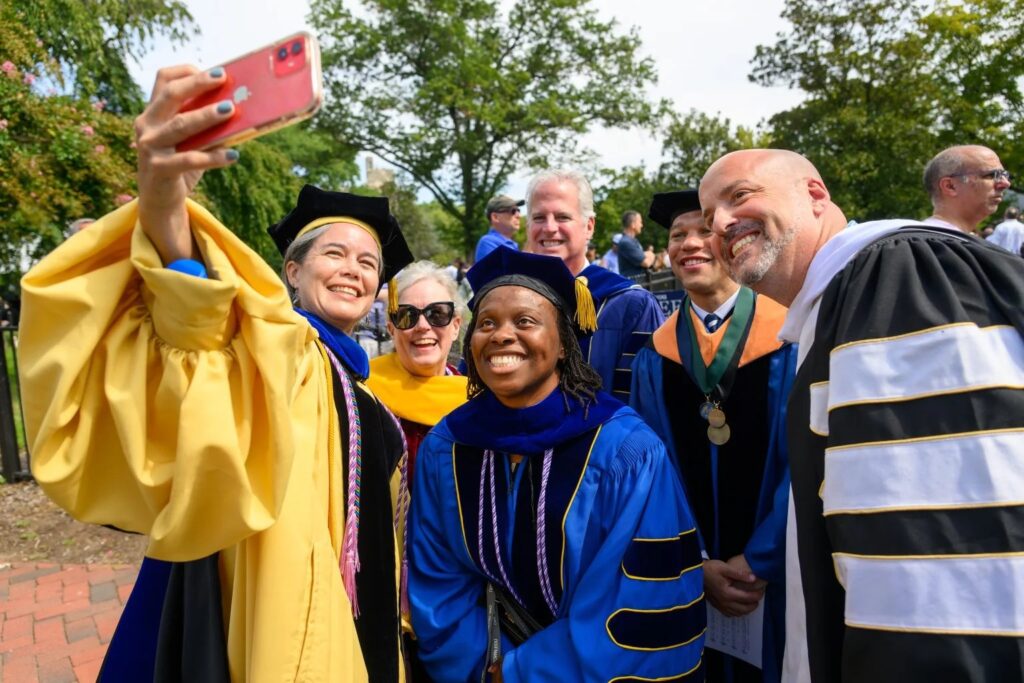
This article was originally published by the Georgetown University. Please follow the link to read the full story.
